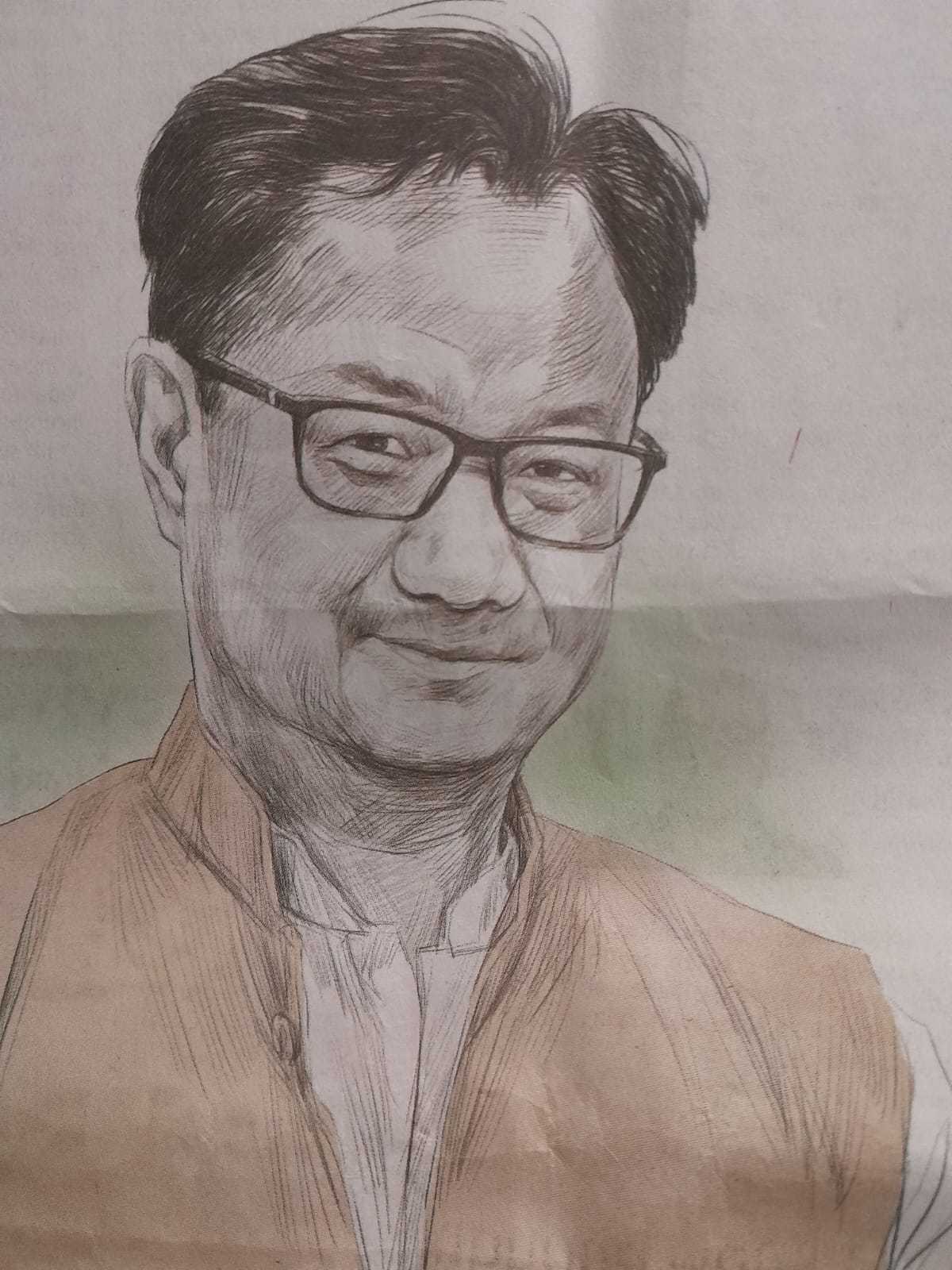(Kiren Rijiu was made India's Law Minister by Prime Minister Narendra Modi as it is largelybelieved that he was not a practicing lawyer in Delhi and hence he would not be guided byor emotionally controlled by his friendship or intimacy with the members of judiciary.
He has been expressing his views freely and without prejudices.)
New Delhi
The mother of all questions is never asked, what's wrong in stating a matter of fact.The issue in debate could be should India's Law Minister share his views in such a candid manner.
Of course an impression has been created in the media and among the opposition circles that there is a 'latent blow hot and blow cold' war between the Modi governmentand the judiciary or the Supreme Court itself.
But those in the know of things maintain that Union Law Minister Kiren Rijiju's letter does not seekto disturb/derail the existing Collegium system. On the contrary, the Minister's letter penned on Jan 6,2023, only makes a suggestion to have a 'Search-cum-Evaluation Committee' both in the Supreme Court and also in all High Courts across the country.
The Law Minister's letter, sources insist, only makes it clear that the central government is all for infusing transparency and public accountability and that is why, it wants government representatives at both the levels - the centre and also the states.
The Centre has in effect underlined as "an important stakeholder" in the process of appointment of judges in the Supreme Court and High Courts, the government's views should also find a place in preparation of the panel of names. The existing system does not have that room.
The Narendra Modi government in 2014, had passed the National Judicial Appointment Commission (NJAC) Act, which set up an alternative system for appointment of judges to constitutional courts. The Act had proposed a greater role for the government in the process. But the Supreme Court upheld the existingcollegium system and struck down the NJAC Act along with the 99th Constitutional Amendment Act.
Rijiju has taken up the issue more than once. In August 2021 the Law minister had in a letter asked the Supreme Court to supplement the existing Memorandum of Procedure (MoP) to formalise the appointment of ad-hoc judges.
The 2021 letter came close on the heels of cabinet reshuffle wherein former Law Minister Ravi Shankar Prasad was dropped and Kiren Rijiju was given the crucial assignment. His letter also came a few months after the apex court directed the centre to make ad-hoc appointments to high courts under Article 224A of the Constitution, which says such a judge can be recruited only with the “previous consent” of the President.
Now in the new letter of Jan 6 (2023) Rijiju has only pointed out that the finalisation of the Memorandum of Procedure (MoP) regarding appointment of judges is still "pending". He said government representative(s) must be included in the "search-cum-evaluation committee". Sources say the Law Minister's new letter to the CJI has said that the Centre's representative should be a member of the evaluation panel for appointment of judges in the apex court and Chief Justices of high courts, and the panels for appointment of judges in the High Courts should also have a nominee of the state government(s).
Notably in November 2022, Rijiju courted controversy when he slammed the mechanism to appoint Supreme Court and high court judges, saying the Collegium system is "alien" to the Constitution. In another
event, Rijiju, who hails from Arunachal Pradesh in northeast India, had said that 'judges only recommend' the appointment or elevation of those "they know". He also implied that not always the fittest person got the job.
However, the minister’s letter is "not for confrontation" and instead takes a step forward by recommending the constitution of a search-cum-evaluation panel wherein there will be official nominees both from the states and centre in thecase of High Court judges and from the centre for appointment of judges to the Supreme Court.A BJP source said the idea of a committee must be seen as an 'evolution of a process' as this idea has been
mooted only "after receiving information from diverse sources" and these include state governments, Centre and also judges.
But the Supreme Court has in the past did not quite agree to such views from the centre.
The Supreme Court had told Attorney General R. Venkataramani that elevation of lawyers, picked up by the collegium for appointment as judges, should not be objected merely due to their point of view.The top court also feels judges' transfer issue is also pending and apparently it creates an impression that as if athird party source is interfering.
In December 2022, a bench of Justice Sanjay Kishan Kaul, and Justices Abhay S. Oka and Vikram Nath, told the Attorney General that just because there are some sections of the society who express a view against the collegium system, it will not cease to be the law of the land.
"There are sections in society who do not agree with the laws made by the Parliament. Should the court stop enforcing such laws on that ground?..." one of the judges had asked.
Insets:
# In the past, Rijiju had said the Collegium system is not mentioned in the Constitution. That's a fact of life. He also said, till there is an 'alternative', the existing system willcontinue.
# In his opening address after assuming as Rajya Sabha chairperson on Dec 7, 2022, Jagdeep Dhankhar had said the Supreme Court’s 2015 judgment striking down the NJAC Act was a “glaring instance” of “severe compromise” of parliamentary sovereignty and went against the “mandate of the people”.
# On Nov 25, 2022, Rijiju had said, "apas mein ladkey koi faida nahi hae (with regard the judiciary)".
ends






No comments:
Post a Comment